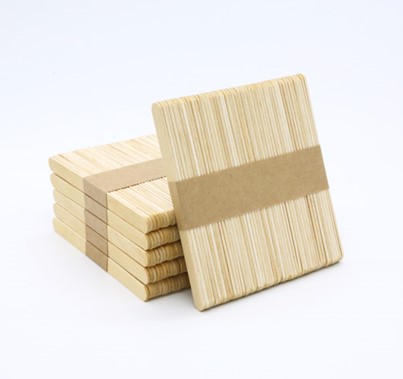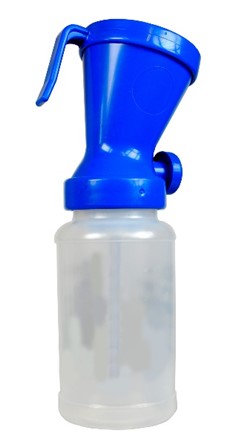"A Silent Battle of Teeth": A Valeologist Explains How Bruxism Ruins Your Sleep and Smile

Photo is illustrative in nature. From open sources.
June 29, Gomel. About 10% of adults suffer from bruxism - involuntary clenching or grinding of teeth not only in sleep but also while awake. Anna Pigulevskaya, a valeologist instructor at the public HEALTH department of the Gomel Regional Center for Hygiene, Epidemiology and Public Health, told BELTA about the causes of this phenomenon and treatment approaches.
As the specialist emphasized, in some cases people may have severe spasms of the masticatory muscles, as a result of which teeth wear down, decay and hurt.
The valeologist instructor named stress and anxiety as one of the reasons for teeth grinding. "Psycho-emotional factors often become reasons for the development of bruxism. Tension and stress can lead to tension in the jaw muscles," she explained.
Also among the causes are diseases of the NERVOUS SYSTEM, dental anomalies, sleep disorders - bruxism is often observed in people with such disorders as apnea (sleep apnea), noted Anna Pigulevskaya.
According to her, the likelihood of grinding teeth can be increased by the use of caffeine and ALCOHOL. In addition, some medications , especially antidepressants, can cause a side effect in the form of bruxism.
"Symptoms vary from mild to severe and include grinding of teeth, especially at night, pain in the jaw or face, headaches, damage to tooth enamel, increased sensitivity of teeth, clicking in the jaws," the instructor-valeologist listed.
She emphasized that the treatment of bruxism depends on the cause, severity and goes hand in hand with prevention. The specialist named some approaches. Firstly, this is stress reduction - relaxation techniques such as meditation and yoga help reduce stress levels. Secondly, the use of mouth guards, which are put on the teeth during sleep and can prevent their damage. Thirdly, bite correction - in some cases, orthodontic treatment may be required to correct anomalies.
it is also necessary to pay attention to lifestyle. "Limiting caffeine and alcohol consumption, as well as quitting smoking, can help reduce the likelihood of bruxism," Anna Pigulevskaya noted. In some cases, the DOCTOR may prescribe muscle relaxants or antidepressants.
"If you suspect that you suffer from this disorder, it is important to consult a doctor for diagnosis and selection of appropriate treatment," the valeologist instructor concluded.
As the specialist emphasized, in some cases people may have severe spasms of the masticatory muscles, as a result of which teeth wear down, decay and hurt.
The valeologist instructor named stress and anxiety as one of the reasons for teeth grinding. "Psycho-emotional factors often become reasons for the development of bruxism. Tension and stress can lead to tension in the jaw muscles," she explained.
Also among the causes are diseases of the NERVOUS SYSTEM, dental anomalies, sleep disorders - bruxism is often observed in people with such disorders as apnea (sleep apnea), noted Anna Pigulevskaya.
According to her, the likelihood of grinding teeth can be increased by the use of caffeine and ALCOHOL. In addition, some medications , especially antidepressants, can cause a side effect in the form of bruxism.
"Symptoms vary from mild to severe and include grinding of teeth, especially at night, pain in the jaw or face, headaches, damage to tooth enamel, increased sensitivity of teeth, clicking in the jaws," the instructor-valeologist listed.
She emphasized that the treatment of bruxism depends on the cause, severity and goes hand in hand with prevention. The specialist named some approaches. Firstly, this is stress reduction - relaxation techniques such as meditation and yoga help reduce stress levels. Secondly, the use of mouth guards, which are put on the teeth during sleep and can prevent their damage. Thirdly, bite correction - in some cases, orthodontic treatment may be required to correct anomalies.
it is also necessary to pay attention to lifestyle. "Limiting caffeine and alcohol consumption, as well as quitting smoking, can help reduce the likelihood of bruxism," Anna Pigulevskaya noted. In some cases, the DOCTOR may prescribe muscle relaxants or antidepressants.
"If you suspect that you suffer from this disorder, it is important to consult a doctor for diagnosis and selection of appropriate treatment," the valeologist instructor concluded.
Read together with it:
- Как победить "осенний синдром"? Очень простые советы для хорошего самочувствияСнизилась концентрация, ощущается упадок сил и весь день клонит ко сну? Это межсезонье, которое идет в комплекте с простудами и вирусами. Как не заболеть осенью - разбираемся вместе с врачом общей практики. Время укреплять иммунитет При смене летнего сезона на осенний замедляются все природные процессы. Организм человека тоже перестраивается, поэтому требует меньше внешних раздражителей и больше с...
- Россия зарегистрировала новый штамм вируса, вызывающего диарею у крупного рогатого скотаВ текущее время существующие профилактические меры в основном основаны на штаммах первого генотипа, в то время как во многих странах фиксируются случаи заболеваний, связанных с вирусом второго генотипа. В России вакцин, охватывающих оба типа возбудителя, пока нет. Патент, зарегистрированный 21 августа, представляет собой важный шаг в обеспечении отечественного животноводства современными средствам...
- Мужчина может стать отцом и в 50, и в 80 лет? Мнение урологаНовости темы Есть мировая тенденция: люди стали заводить детей позже. Может ли мужчина 50-60 лет стать отцом здорового ребенка? И что для этого нужно делать? В проекте БЕЛТА "В теме. Здоровье" объяснил врач уролог-андролог Александр Баценко. - Мужчина может стать отцом и в 50, и в 80 лет. Это определяется его общим здоровьем и образом жизни: если он не курил или курил нечасто, не злоупотреблял алк...
- Buffalo Farming in Colombia: From Exotic Species to Golden OpportunityIn Colombia, the buffalo market has grown significantly in recent years, becoming an unrivaled alternative for cattle farmers. According to the ICA (National Institute of Agricultural Research), the buffalo population has increased by 60.1% over the past six years, from 336,417 HEAD in 2018 to more than 617,......
- What Factors Reduce Testosterone Levels? Let's Talk LifestyleTopic newsIs it possible to simply inject testosterone if its level has dropped? In the BELTA project "In the subject. Health" urologist-andrologist Alexander Batsenko spoke about the level of this hormone and its impact on men 's HEALTH . - My position is this: we need to do everything in a reasonable way. In nature, animals also have testosterone. And men have always had it. Perhaps due to envir...
- Metro Names Why Rumors About Trump's Health Have IncreasedSpeculation about the HEALTH of US President Donald Trump has intensified amid road closures near Walter Reed National Military Hospital in Washington, the British newspaper Metro reports. Trump was treated at this hospital in 2020 forcovid-19 . The photos appeared on the social network X after the Republican arrived at his golf club with a motorcade. Metro has found no confirmation of the legalit...
- Pinsk resident forged prescriptions and sold them on social networks. Court sentencedPhoto by the Prosecutor General's Office September 2, Brest. The Pinsk Interdistrict Prosecutor's Office supported the state prosecution in COURT in a criminal case on document forgery and the use of a knowingly forged official document, BELTA reports citing the information service of the Brest Region Prosecutor's Office. A 34-year-old local resident was in the dock. Previously, he was undergoing ...
- Doctor lists main causes of male infertilityTopic news What could be the causes of male infertility? In the project "In the topic. Health" Alexander Batsenko, urologist-andrologist, told . - Factor number one, which we can highlight with a red line, is that over the past 10 years, sperm quality has fallen by 40%. That is, a modern guy of 20-3......




























































